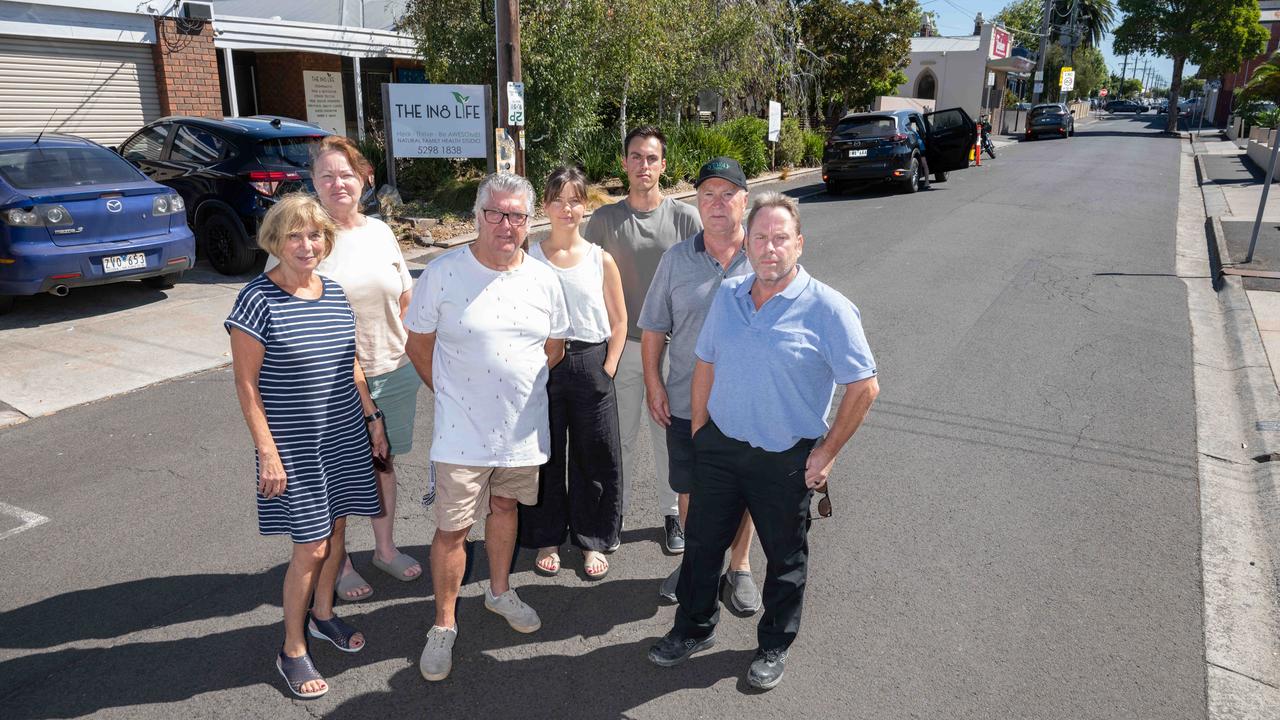How Geelong footy clubs are tackling concussion, CTE risk
The Australian Sports Brain Bank is asking Geelong residents to consider donating their brains after death. Here’s why the 600 brains already pledged are “not enough”.
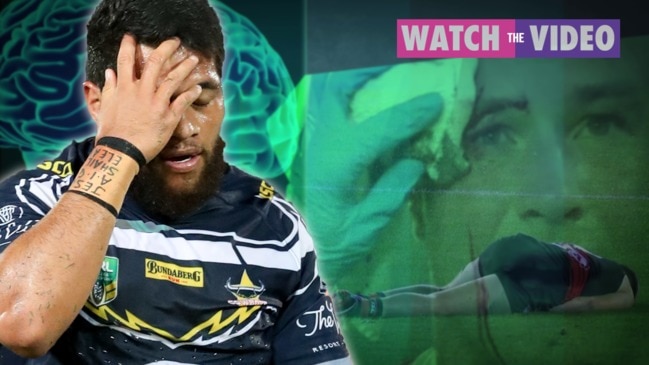
Geelong
Don't miss out on the headlines from Geelong. Followed categories will be added to My News.
Geelong residents are being urged to donate their brains amid a push to raise awareness among the local football community of a neurodegenerative disease associated with repeated head injury.
A former local footballer from the Geelong region who was aged in his 40s when he died suddenly last year after battling mental health issues was diagnosed with Stage 1-2 chronic traumatic encephalopathy (CTE) after his death.
He suffered multiple concussions over many years and pledged his brain to the Australian Sports Brain Bank for research before he died.
CTE is associated with dementia, depression, paranoia, aggression and impaired judgment.
In the lead-up to this year’s footy season, Geelong Sports Medicine Centre (GSMC) undertook SCAT5 pre-season baseline concussion testing and tested more than 200 local level footballers from clubs including Geelong Amateurs, Newtown Chilwell, and Anakie.
“This has been a movement driven by these clubs … and it’s been really pleasing to see action from the grassroots level,” GSMC director and physiotherapist Nick Jarman said.
SCAT5 is a standardised tool used for evaluating suspected concussion post injury, andfor some footballers the testing was an exercise for future reference.
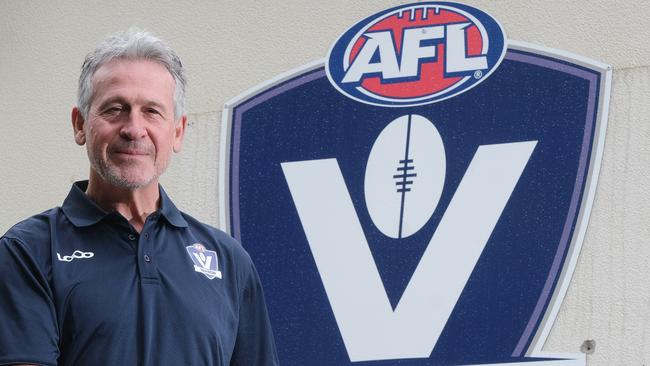
But a couple of players that were tested, who had suffered repeated concussions and expressed concern, were referred to a specialised concussion physio, who can help manage post-concussion symptoms such as headaches, visual deficits, and dizziness and balance issues.
AFL Barwon boss Bruce Harwood said he “absolutely” supported clubs taking initiative around raising the profile of concussion.
“We need to make sure players are protected as best as possible,” he said.
“There’s always a risk of injury but you want to make sure people get the best medical treatment available.”
AFL Barwon last year adopted the AFL’s mandate that players sit out a minimum 12 days after suffering a concussion.
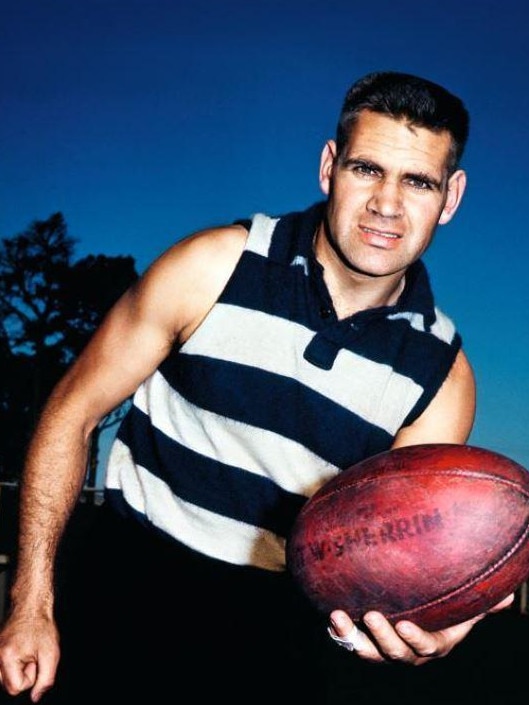
Geelong Cats legend Graham “Polly” Farmer was the first Australian rules player to be diagnosed with CTE.
He was diagnosed with Stage III CTE after his death in 2019 aged 84 following a long battle with Alzheimer’s.
Former Richmond player Shane Tuck died by suicide aged 38 in 2020, and was posthumously diagnosed with severe CTE.
Tuck’s sister Renee will be among speakers at an upcoming symposium presented by the GSMC, which has partnered with the Australian Sports Brain Bank.
The Sports Concussion and CTE Symposium will hear from leading experts including Associate Professor Alan Pearce from Neuro Sports Labsand Associate Professor Michael Buckland, founding director of the Australian Sports Brain Bank.
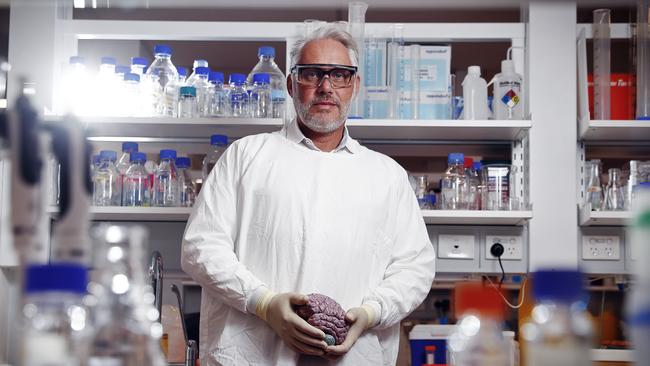
The Australian Sports Brain Bank was established in 2018 to support the study of CTE in Australia.
A study published in the Medical Journal of Australia showed of the bank’s first 21 completed donations, to March 2021, 12 had CTE.
Six of the 12 with CTE had died by suicide, suggesting CTE may be a suicide risk factor, the paper said.
All 21 donors had participated in sports with risks of repetitive head injury, it said.
Results have not been released yet for a further 15 brains that have been analysed since, Prof Buckland said.
The brain bank has received more than 600 brain donation pledges from amateur and professional sportspeople.
“We don’t think that’s enough, we’d like to have 5000 people on our books eventually,” Prof Buckland said.
“We’d love everyone to sign up to donate their brain.
“We’d love lots of control brains as well, even if you’ve had no exposure to football but you want to help you can still sign up because the more spectrum of exposure to repetitive head injury we get, including no exposure, the more useful our findings will be.”
He said examination involved assessing the brain for atrophy,slicing the brains into 3mm pieces which are assessed, and analysing samples using microscopes.
Prof Buckland said CTE should be discussed more in community sport.
He said it seemed that the risk of developing CTE was most strongly linked to the length of your playing career.
“In Australia because we have such strong community football people will keep playing throughout their 30s, if they started when they were say five or seven, that’s a very long exposure to repetitive head knocks,” he said.
CTE can currently only be diagnosed post-mortem and Prof Buckland said getting a diagnosis during life is key to then being able to treat the disease.
“Our focus in that area is looking at blood tests,” he said.
He said being able to diagnose people during life meant treatments could be trialled for reducing severity or natural progression of the disease.
GSMC hopes to create awareness of the sports brain bank and reduce the incidence of CTE, through initiatives including educating people on concussion management and engaging with the local community to support research and protocol implementation.
“Concussion can affect athletes at all levels of sport,” Mr Jarman said.
“While there is a lot in the news about concussions at the elite level, more needs to be done at the local community sports level around understanding proper management and return-to-play guidelines.”
He said GSMC’s campaign would focus on concussion awareness and correct management.
The seminar is for athletes, parents, coaches and trainers, allied health and medical practitioners and anyone involved in a contact sport.
It will include research from the Australian Sports Brain Bank on CTE and other brain pathology associated with repetitive head injury in sports, and discuss what can be done to help retired players and how we can protect future generations.
The GSMC symposium will be held on May 11 between 5.30pm and 7.30pm at The Geelong College Keith Humble Centre.
Tickets cost $38, with funds going to the Australian Sports Brain Bank, and are available at www.gsmc.net.au
People can find information on pledging to the brain bank at www.brainbank.org.au
If you or anyone you know needs help, call Lifeline on 13 11 14 or Barwon Health mental health, drugs and alcohol triage on 1300 094 187
More Coverage
Originally published as How Geelong footy clubs are tackling concussion, CTE risk






